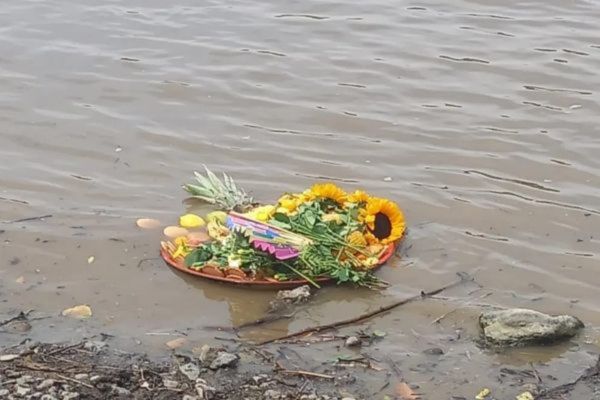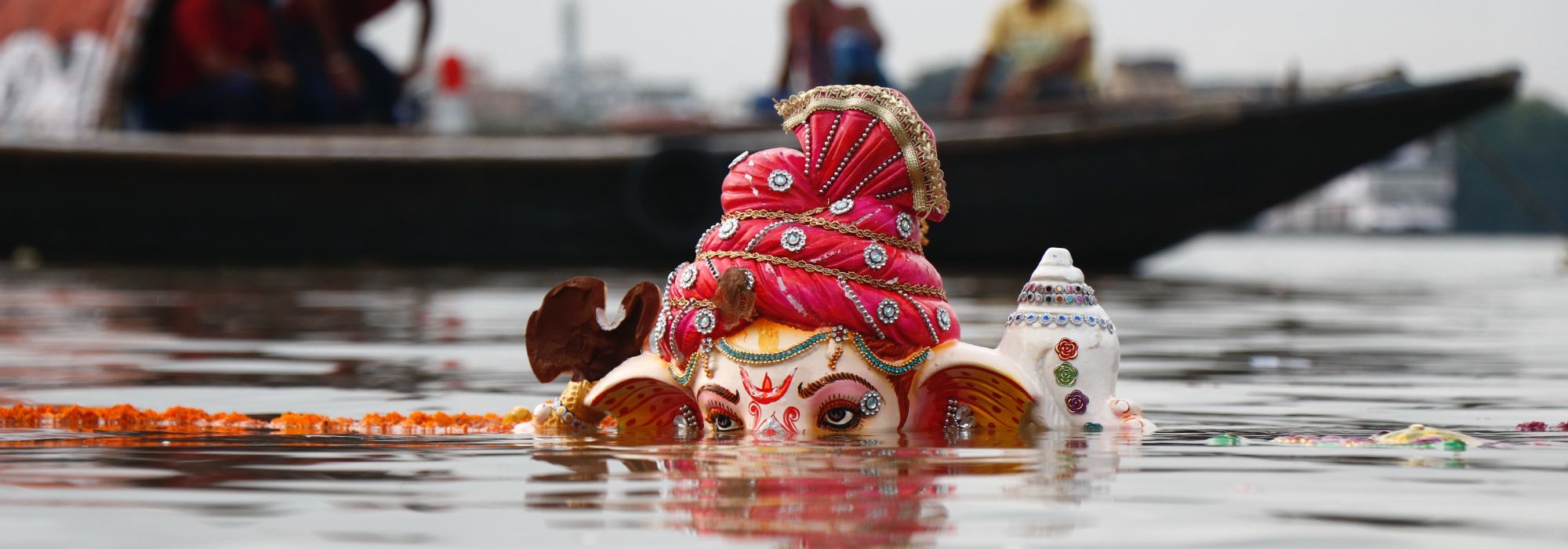River deities, explained

The treatment we currently give to our rivers and waterways couldn’t be more different than the one given by our ancestors. Nature was regarded as sacred, and people were seen as its guardians. Bodies of water were especially linked to spirituality, deities, and forces of nature – and, therefore, needed to be cared for and protected. Springs, rivers, and wells played a major role, and still do so to some communities, in spiritual and religious beliefs.
Since time immemorial, waterways have been linked to mystic stories and places for votive offers, sacrifices, and rituals. While those changed over time and differed from one culture and religion to the other, they all had in common a deep respect for water and all it has to offer: cleansing properties, nourishment and ultimately, life. The concept that life on Earth originated with water was explored long before any evolution ideas.
Deities are sacred, spiritual beings and stem from ancient culture. They usually name rivers or are associated with them. Some examples are the River Dee, which is named after Deva, the ‘river of the goddess’, and the River Severn which comes from the name Sabrina, a legendary princess who drowned in the river. The name of the River Thames shares a root in a Brythonic* term meaning ‘dark’. It was formerly Latinised as Tamesis and subsequently named its deity Old Father Thames.
The River Thames also has other gods and goddesses associated with it: the Celtic gods Lud and Belinus and the mother goddess Isis – an Egyptian goddess linked to rivers, nature, fertility, and motherhood, amongst other things. It is viewed by some, however, that the Old Father Thames, is the most prominent one. He’s similar to Achelous, the Greek god of the river, and symbolises the idea of plenty and renewal, and is such a prestigious figure that there are a few statues of him around London at Ham House, Somerset House and Hammersmith Town Hall.
Religious communities also consider the Thames as sacred. It is not unusual for mudlarkers to discover objects of significance belonging to Hindus, Muslims and Christians on the Thames foreshore. In her recent Instagram social media post, author and mudlarker Lara Maiklem stated that she finds many river offerings in the Thames, primarily Hindu ones. She added: “The river was blessed in 1970 as a sacred river, which means it can be used for various sacred rites.”
River deities are not only unique to the Thames, they also exist in cultures around the world. For example, in Senegal, West Africa, river goddess Mame Coumba Bang is said to reside in the Senegalese town of Saint-Louis and protects the people in the area. She resides at the mouth of this Senegal River where it meets the Atlantic Ocean and traditionally receives such tributes on the birth of a baby.
Thames21’s trustee Dr Michelle Yaa Asantewa organises the annual Osun ritual to honour Mama Osun, a river deity and force of nature who originates from the Yoruba Ifa tradition in West Africa. She brings abundance, creativity, fertility, healing, healing, joy, and protection and is also seen as an important environmental symbol.
We were lucky enough to partner twice with Dr Yaa Asantewa as part of London Rivers Week 2022 and 2023. Together, we promoted river clean-ups in Battersea and ceremonies to celebrate Mama Osun. Our volunteers were asked to wear yellow and white, her traditional colours, and to bring colourful fruits, sweets, and flowers to offer. We also had specialist drummers and prayer readings. These were special, feel-good events that celebrated the river and all its meanings.
As well as gods and goddesses, there are other spirits and magical beings associated with rivers. In her book entitled ‘The Flow’, author Amy-Jane Beer stated that in Norse and Germanic mythology, the water spirits known as nix, nek, nixie and nicor appear as animals or riverine merfolk. She added that their names stem from the same “proto-Indo-European root verb meaning ‘to wash’, which also gives us naked and nude”.
All in all, our waterways have always been seen as places to heal, to protect and to worship. It’s time to bring back our ancestors’ reverence and deep respect for our waters, for both our sake and the planet, regardless of our religion and spiritual beliefs. We have neglected and polluted them for long enough, now it’s our turn to help them heal.
* The southern group of Celtic languages, consisting of Welsh, Cornish, and Breton.
